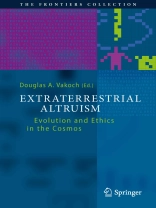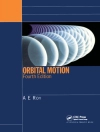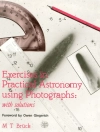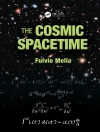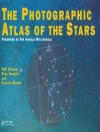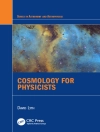Extraterrestrial Altruism examines a basic assumption of the Search for Extraterrestrial Intelligence (SETI): that extraterrestrials will be transmitting messages to us for our benefit. This question of whether extraterrestrials will be altruistic has become increasingly important in recent years as SETI scientists have begun contemplating transmissions from Earth to make contact.
Technological civilizations that transmit signals for the benefit of others, but with no immediate gain for themselves, certainly seem to be altruistic. But does this make biological sense? Should we expect altruism to evolve throughout the cosmos, or is this only wishful thinking? Is it dangerous to send messages to other worlds, as Stephen Hawking has suggested, or might humankind benefit from an exchange with intelligence elsewhere in the galaxy? Would extraterrestrial societies be based on different ethical principles, or would we see commonalities with Earthly notions of morality? Extraterrestrial Altruism explores these and related questions about the motivations of civilizations beyond Earth, providing new insights that are critical for SETI.
Chapters are authored by leading scholars from diverse disciplines—anthropology, astronomy, biology, chemistry, computer science, cosmology, engineering, history of science, law, philosophy, psychology, public policy, and sociology. The book is carefully edited by Douglas Vakoch, Director of Interstellar Message Composition at the SETI Institute and professor of clinical psychology at the California Institute of Integral Studies. The Foreword is by Frank Drake.
This interdisciplinary book will benefit everybody trying to understand whether evolution and ethics are unique to Earth, or whether they are built into the fabric of the universe.
İçerik tablosu
Cosmic Evolution, Reciprocity, and Interstellar Tit for Tat.- Extraterrestrial Intelligence: Friends, Foes, or Just Curious?.- Eliciting Altruism While Avoiding Xenophobia: A Thought Experiment.- Predator – Prey Models and Contact Considerations.- Harmful ETI Hypothesis Denied: Visiting ETIs Likely Altruists.- Altruism Toward Non-Humans: Lessons for Interstellar Communication.- Caring Capacity and Cosmocultural Evolution: Potential Mechanisms for Advanced Altruism.- The Precautionary Principle: Egoism, Altruism, and the Active SETI Debate.- The Accidental Altruist: Inferring Altruism from an Extraterrestrial Signal.- Interstellar Intersubjectivity: The Significance of Shared Cognition for Communication, Empathy, and Altruism in Space.- Other Minds, Empathy, and Interstellar Communication.- Interspecies Altruism: Learning from Species on Earth .- Terrestrial and Extraterrestrial Altruism.- Kenotic Ethics and SETI: A Present-day View.- Altruism, Metalaw, and Celegistics: An Extraterrestrial Perspective on Universal Law-Making.- A Logic-Based Approach to Characterizing Altruism in Interstellar Messages.- Equity and Democracy: Seeking the Common Good as a Common Ground for Interstellar Communication.- Patterns of Extraterrestrial Culture.- Evolutionary Perspectives on Interstellar Communication: Images of Altruism.
Yazar hakkında
Douglas A. Vakoch, Ph.D., is Director of Interstellar Message Composition at the SETI Institute, as well as Professor of Clinical Psychology at the California Institute of Integral Studies. He serves as chair of both the International Academy of Astronautics (IAA) Study Group on Interstellar Message Construction and the IAA Study Group on Active SETI: Scientific, Technical, Societal, and Legal Dimensions. Through his membership in the International Institute of Space Law, Dr. Vakoch examines policy issues related to interstellar communication. His research spans the fields of psychology, anthropology, environmental studies, and space sciences, and his books include Psychology of Space Exploration: Contemporary Research in Historical Perspective (NASA, 2011); Communication with Extraterrestrial Intelligence (SUNY Press, 2011); Ecofeminism and Rhetoric: Critical Perspectives on Sex, Technology, and Discourse (Berghahn Books, 2011); Feminist Ecocriticism: Environment, Women, and Literature (Lexington Books, 2012); Altruism in Cross-Cultural Perspective (Springer, 2013); On Orbit and Beyond: Psychological Perspectives on Human Spaceflight (Springer, 2013); Archaeology, Anthropology, and Interstellar Communication (NASA, 2013); and Astrobiology, History, and Society: Life Beyond Earth and the Impact of Discovery (Springer, 2013).
